Monty Python and the Holy Grail is widely considered to be among the best comedy films of all time, and it's certainly one of the most quotable. This absurdist masterpiece sending up Arthurian legend turns 50 (!) this year.
It was partly Python member Terry Jones' passion for the Middle Ages and Arthurian legend that inspired Holy Grail and its approach to comedy. (Jones even went on to direct a 2004 documentary, Medieval Lives.) The troupe members wrote several drafts beginning in 1973, and Jones and Terry Gilliam were co-directors—the first full-length feature for each, so filming was one long learning process. Reviews were mixed when Holy Grail was first released—much like they were for Young Frankenstein (1974), another comedic masterpiece—but audiences begged to differ. It was the top-grossing British film screened in the US in 1975. And its reputation has only grown over the ensuing decades.
The film's broad cultural influence extends beyond the entertainment industry. Holy Grail has been the subject of multiple scholarly papers examining such topics as its effectiveness at teaching Arthurian literature or geometric thought and logic, the comedic techniques employed, and why the depiction of a killer rabbit is so fitting (killer rabbits frequently appear drawn in the margins of Gothic manuscripts). My personal favorite was a 2018 tongue-in-cheek paper on whether the Black Knight could have survived long enough to make good on his threat to bite King Arthur's legs off (tl;dr: no).
So it's not at all surprising that Monty Python and the Holy Grail proved to be equally influential and beloved by Ars staffers, several of whom offer their reminiscences below.
They were nerd-gassing before it was cool
The Monty Python troupe famously made Holy Grail on a shoestring budget—so much so that they couldn't afford to have the knights ride actual horses. (There are only a couple of scenes featuring a horse, and apparently it's the same horse.) Rather than throwing up their hands in resignation, that very real constraint fueled the Pythons' creativity. The actors decided the knights would simply pretend to ride horses while their porters followed behind, banging halves of coconut shells together to mimic the sound of horses' hooves—a time-honored Foley effect dating back to the early days of radio.
Being masters of absurdist humor, naturally, they had to call attention to it. Arthur and his trusty servant, Patsy (Gilliam), approach the castle of their first potential recruit. When Arthur informs the guards that they have "ridden the length and breadth of the land," one of the guards isn't having it. "What, ridden on a horse? You're using coconuts! You've got two empty halves of coconut, and you're bangin' 'em together!"
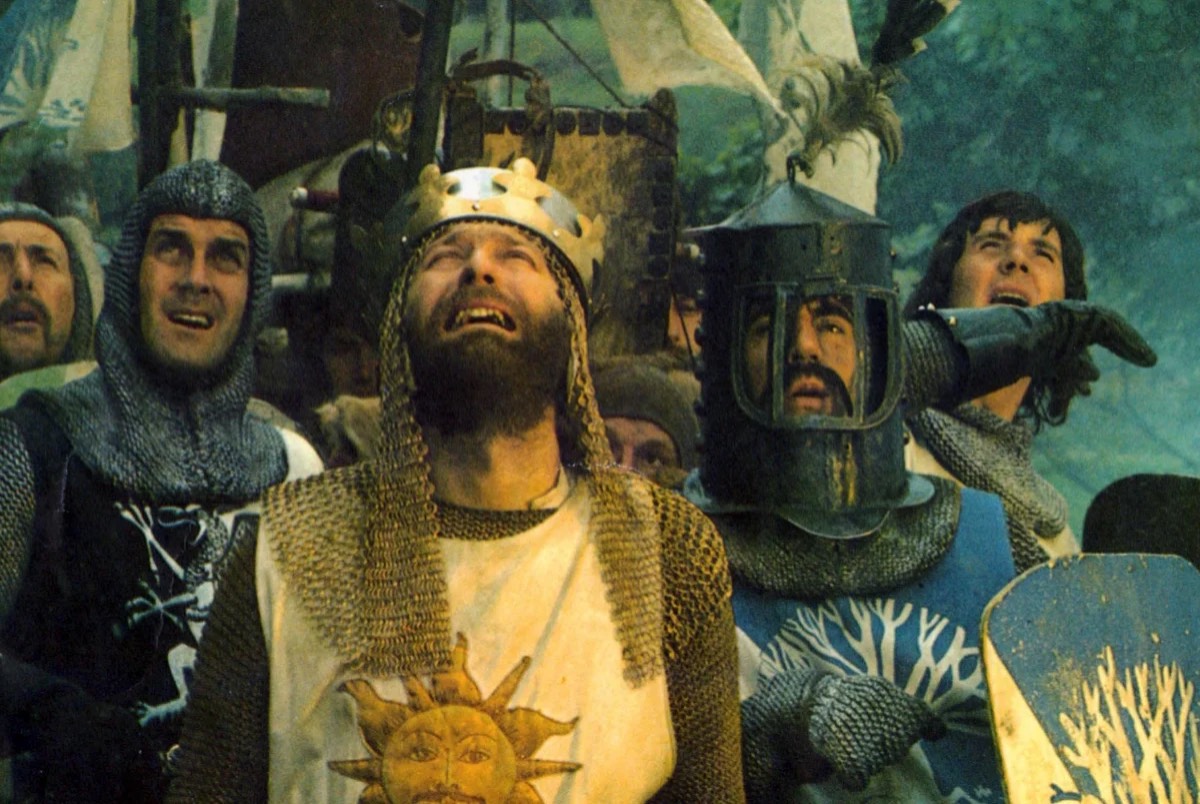
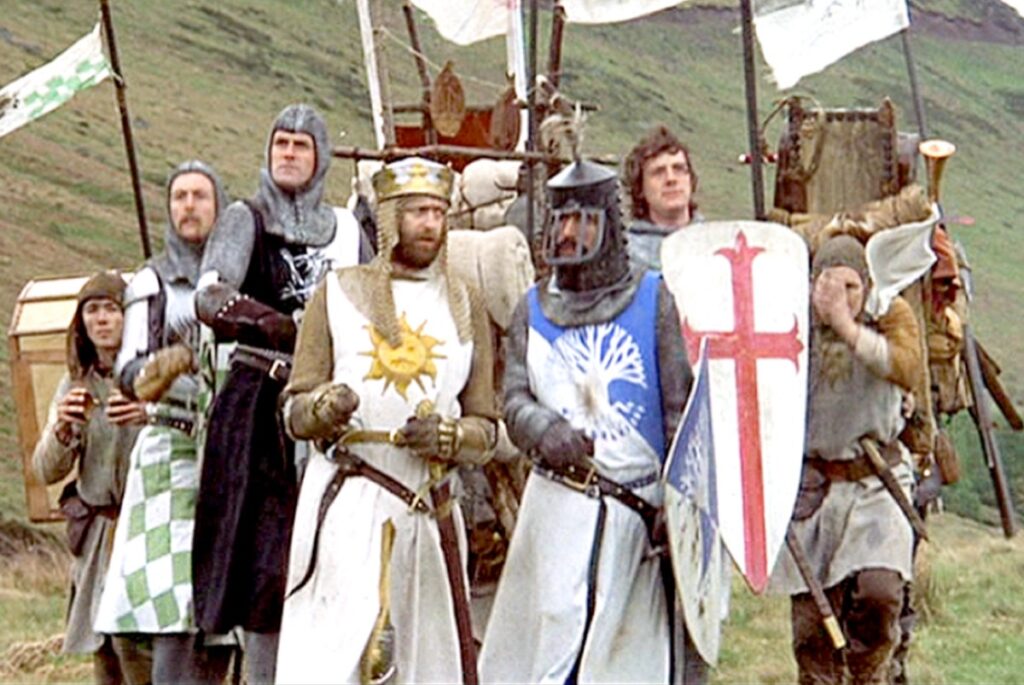
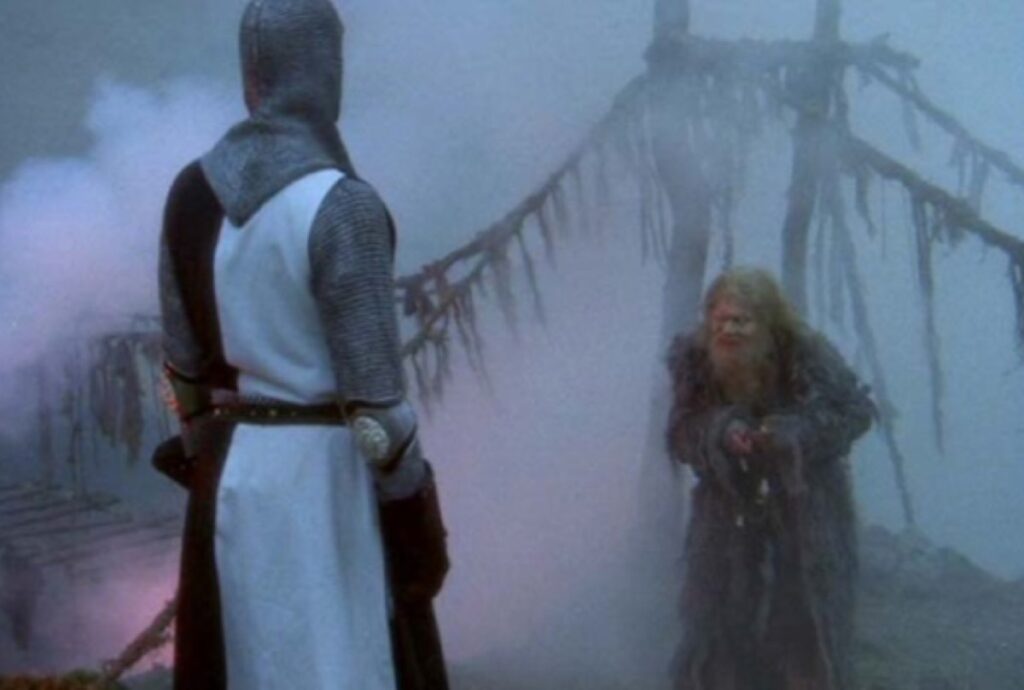
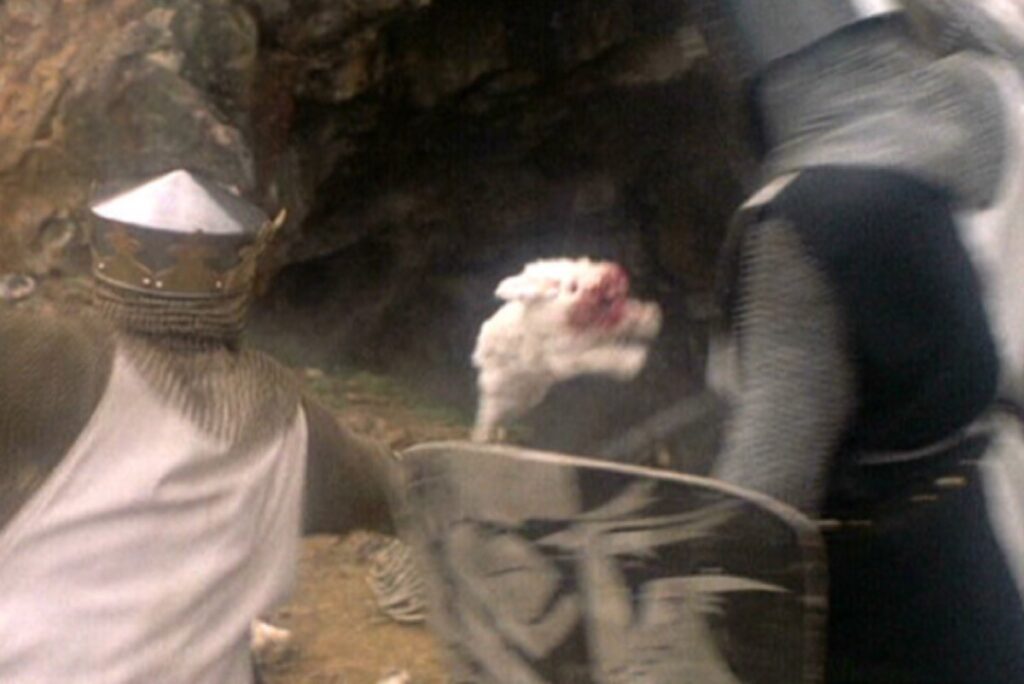
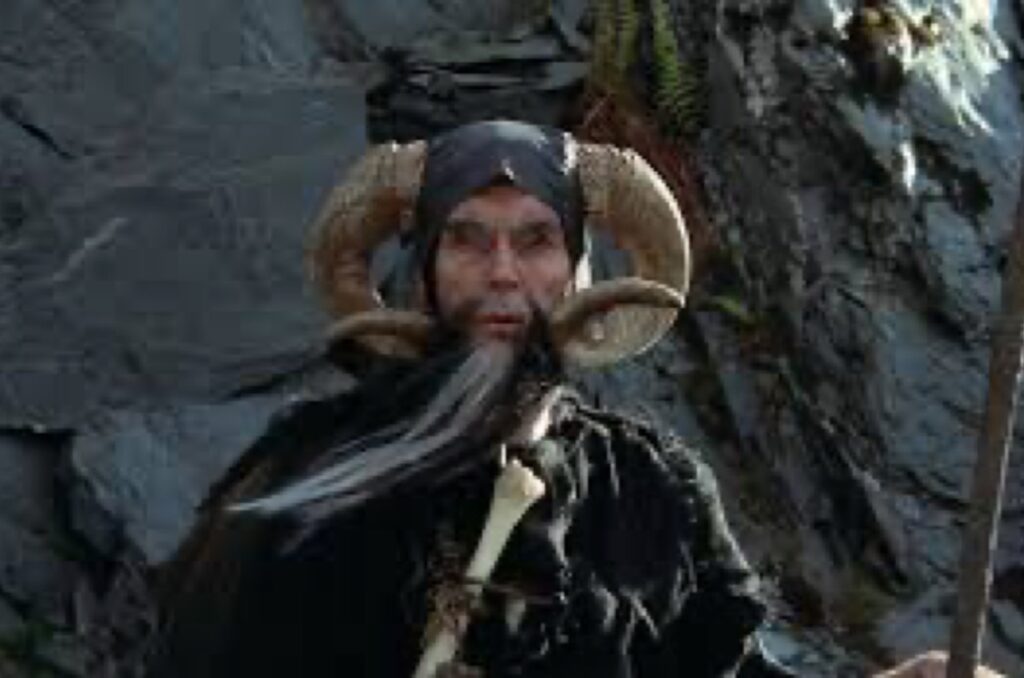
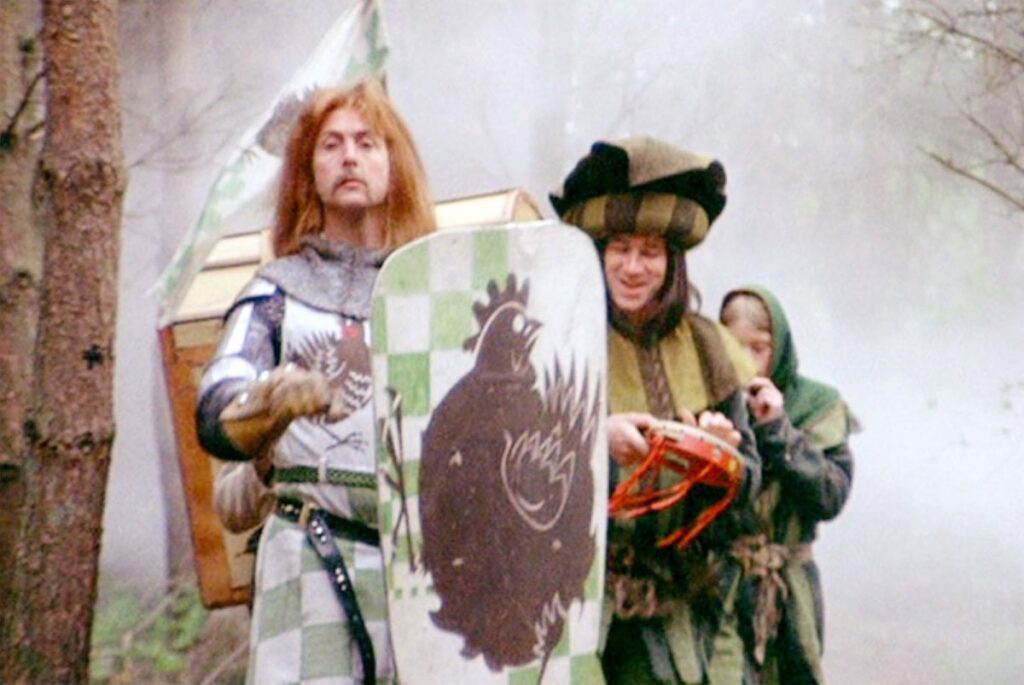
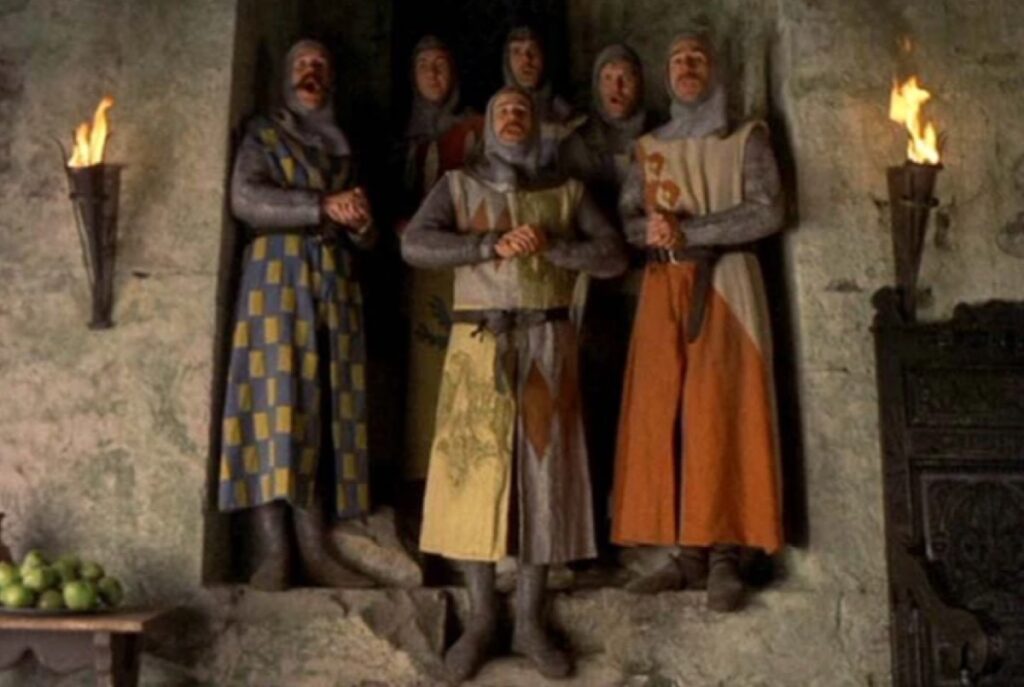
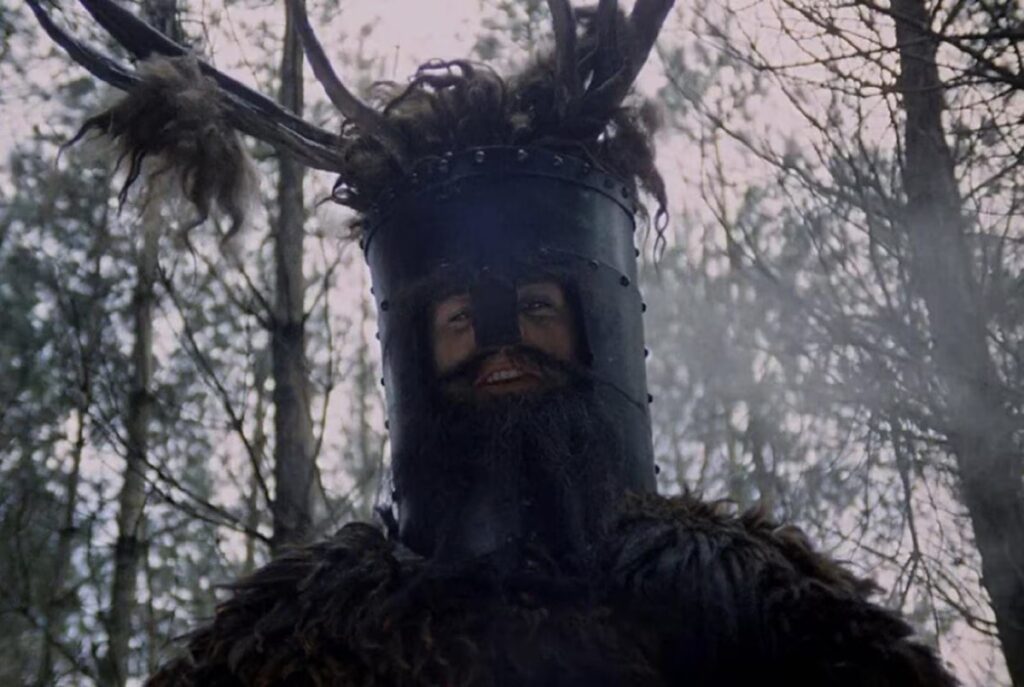
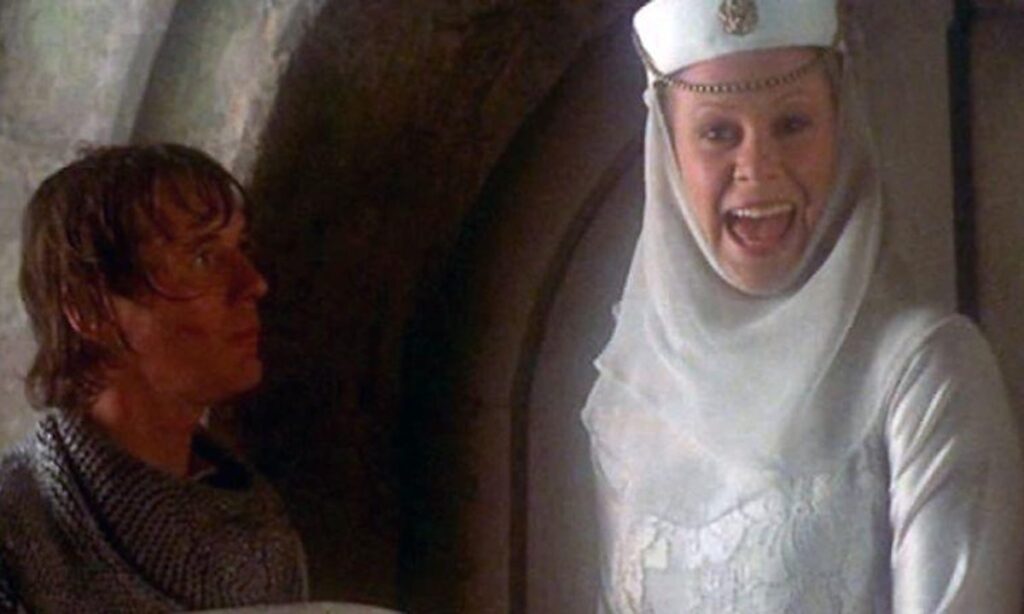
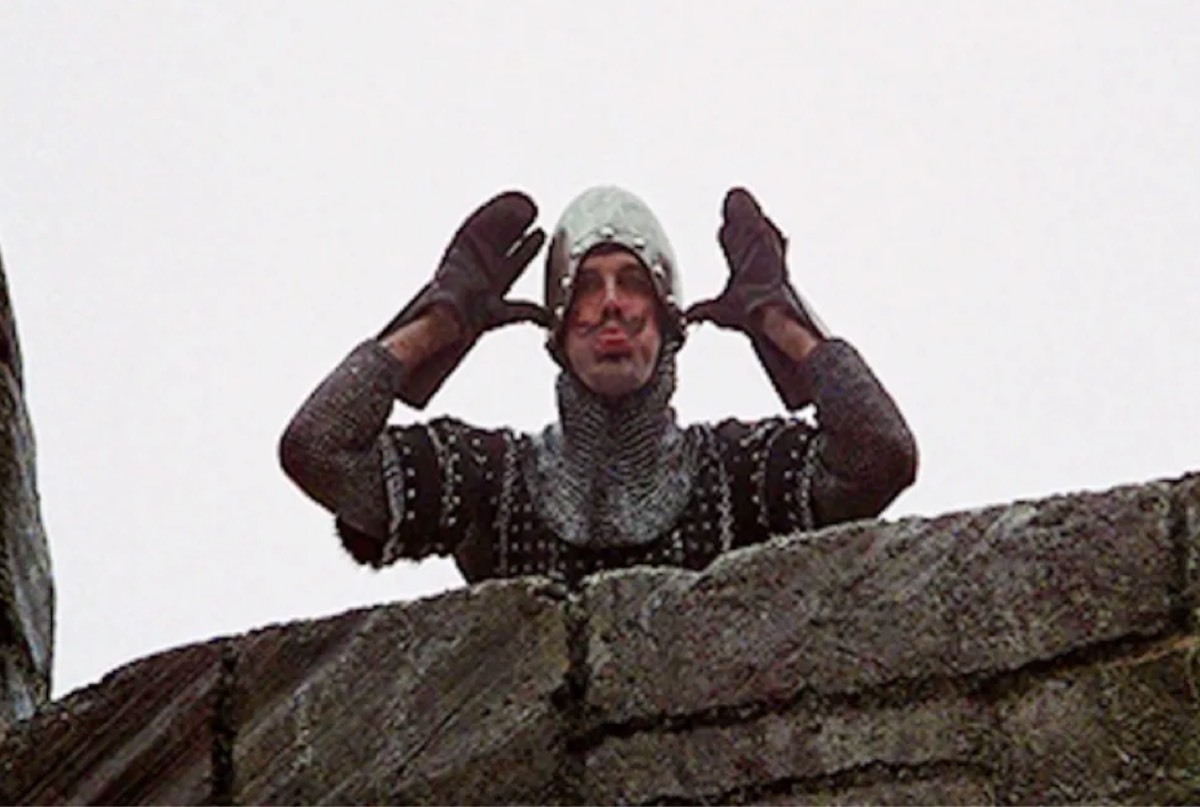
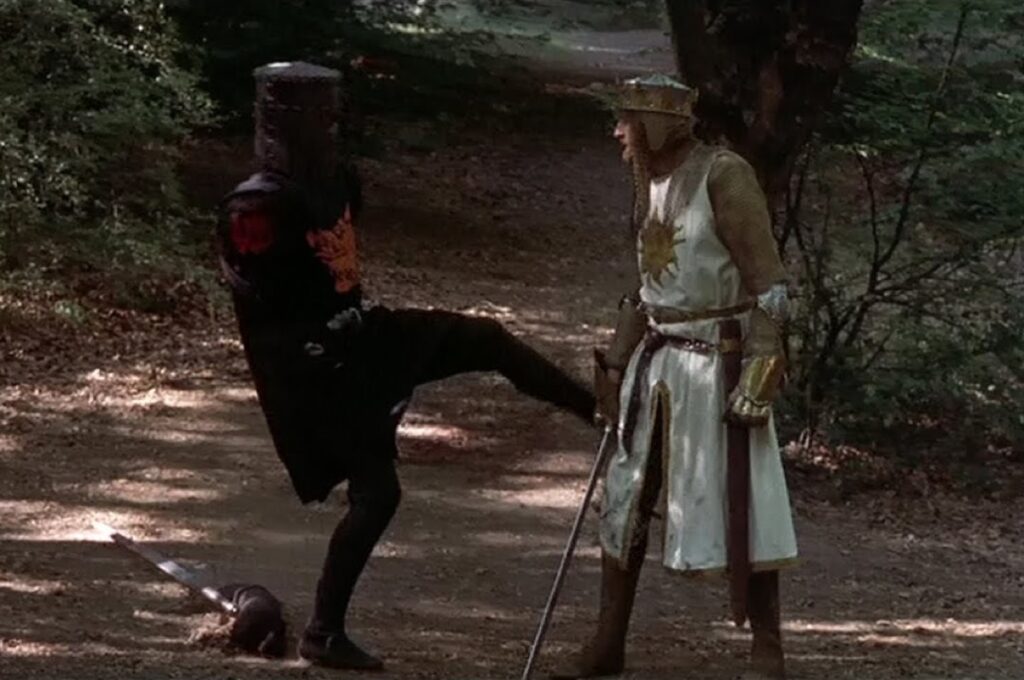
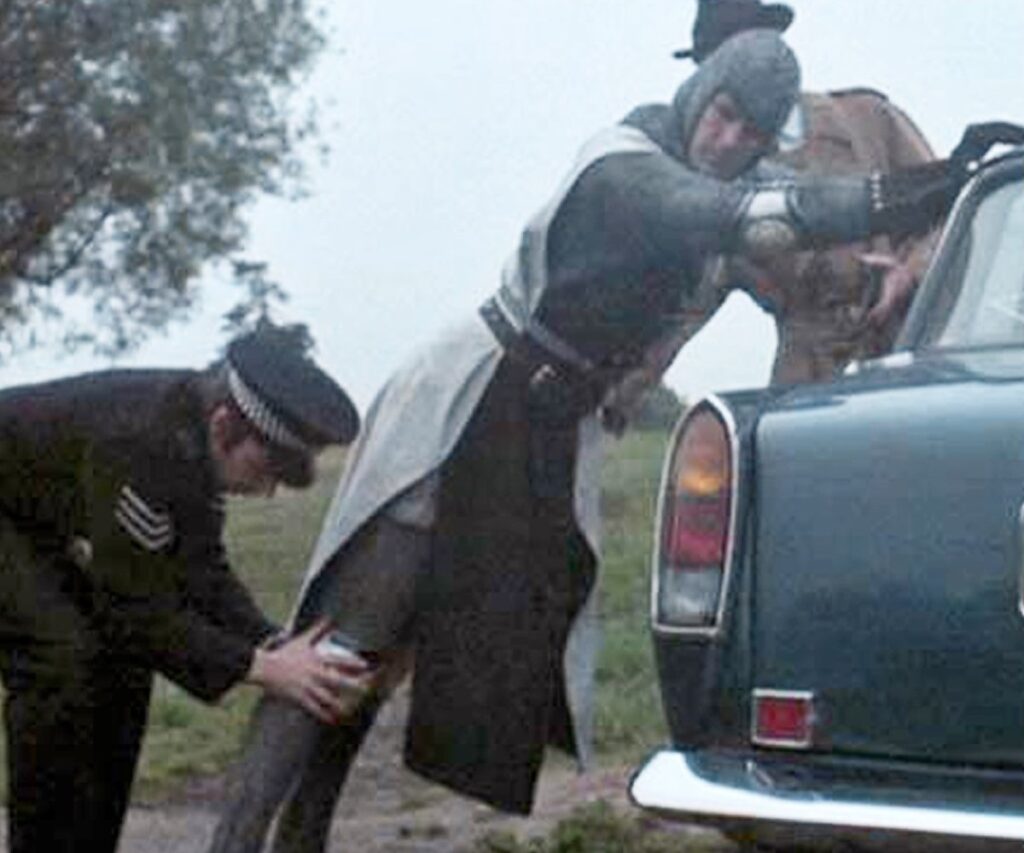
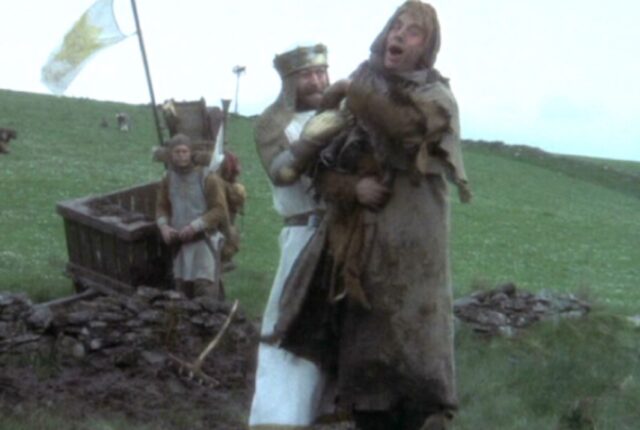

 Loading comments...
Loading comments...
